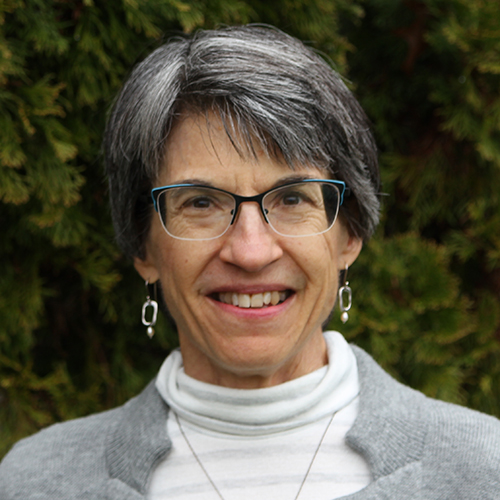By Mary Nitzsche
In the last year, I have been reading or listening to stories of women who served the Mennonite church and its institutions as pastors, educators, administrators, or theologians. Some of these women are living and continue to serve the church in their retirement; some face declining health and its limitations. Others have died. I am grateful, blessed, and inspired by these faithful, vibrant, and gifted followers of Jesus.
I began to gather stories of women leaders, lay and credentialed, from the former Franconia and Eastern District Conferences who paved the way for women exercising the full range of ministry gifts in the church. Their stories need to be shared publicly as a witness of the Spirit’s movement. I read two books about women leaders that have provided additional inspiration: She Has Done a Good Thing: Mennonite Women Leaders Tell Their Stories, edited by Mary Swartley and Rhoda Keener (Herald Press, 1999) and Quiet Shouts: Stories of Lancaster Conference Women Leaders, edited by Louise Stoltzfus (Herald Press, 1999).

In my listening and reading, I discovered the women had some similar qualities. They were faithful followers of Jesus, and they had a love for the church and a desire to serve. They were responsive to the Spirit’s nudging. The women also had male leaders who recognized their gifts and encouraged and supported them.
As young women growing up in the church, they did not have a theology allowing women to be in primary leadership roles in congregations, conferences, denominations, or in institutions of the church, nor were they aspiring to assume any of these roles. Most of the women did not have female role models serving in these leadership roles. In college, they majored in education or nursing, which were considered acceptable professions for women.

In their journeys, the women began to feel unsettled in their current roles. They sensed a desire and call to serve the church in a role that had not been assumed by women. The nudging came from within and was often accompanied by encouragement and support from a male colleague. Most of the women experienced resistance in their ministry. People walked out of the room when they preached. They were silenced or not taken seriously when they spoke in a meeting. They were shamed or told they were not being obedient to scripture. Their attempts to offer pastoral care were rejected.
Changes in belief and understanding of scriptural teaching on women’s leadership roles in the church did not happen quickly. Disagreement in belief and practice continues in our congregations, conferences, and institutions. The 1995 Confession of Faith in a Mennonite Perspective, Article 15, states clearly the position of Mennonite Church USA and Mosaic Conference: The church calls, trains, and appoints gifted men and women to a variety of leadership ministries on its behalf. These may include such offices as pastor, deacon, and elders as well as evangelists, missionaries, teachers, conference ministers, and overseers. Even though this is the conference’s position, Mosaic allows congregations to discern the role of women in leadership in their context.
I am so grateful for women who courageously accepted roles they did not feel prepared for. I am also glad these women persevered when they faced resistance or animosity when accepting a leadership role, even as the church was disagreeing, arguing, and dividing. It is evident in all these stories that the Spirit was moving within the women who were doing a new thing. The Spirit was also moving in people in the church who responded to the transforming power of the Spirit through these courageous women.

Mary Nitzsche
Mary Nitzsche is a Leadership Minister for Mosaic Conference. She and her husband, Wayne, are Midwest natives. They have two adult daughters, Alison and Megan, son-in-laws, Michael and David, and one delightful grandson, William.
The opinions expressed in articles posted on Mosaic’s website are those of the author and may not reflect the official policy of Mosaic Conference. Mosaic is a large conference, crossing ethnicities, geographies, generations, theologies, and politics. Each person can only speak for themselves; no one can represent “the conference.” May God give us the grace to hear what the Spirit is speaking to us through people with whom we disagree and the humility and courage to love one another even when those disagreements can’t be bridged.
